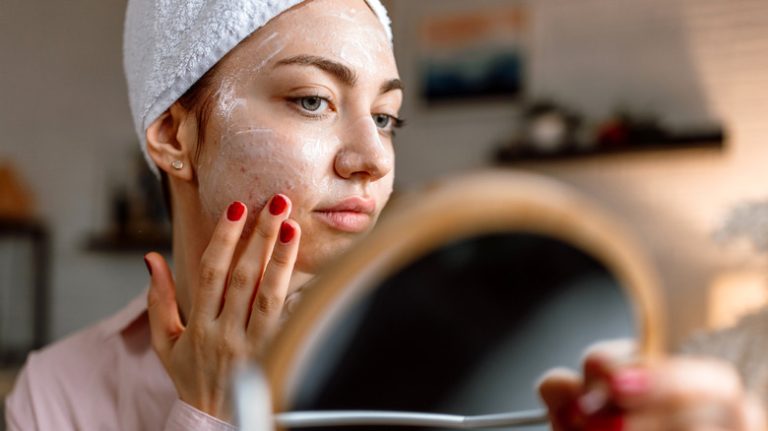
It’s not uncommon for people to skip a shower for a day or two (or even seven, if you’re an avid camper rather than a glamper). This usually isn’t a major issue, although dermatologist Dr. Mary Stevenson notes that “most people, by day two or day three, are not clean” (as reported by Time).
In simpler terms, pay attention to your body’s needs because less frequent showering will eventually cause your skin to raise alarms. When you reduce your shower frequency, your skin might develop scaly patches or become discolored. It could even appear dirty due to hyperpigmented spots, although this isn’t actual dirt. Reaching this stage might mean it’s time to consult a dermatologist to check for dermatitis neglecta.
Dermatitis neglecta is more than just skin discoloration or irritation; it represents significant inflammation and irritation due to inadequate personal hygiene.
Buildup on the skin changes its appearance and texture

While dermatitis neglecta isn’t particularly common, it may occur more often than previously thought. A 2006 article in the Dermatology Online Journal suggests that historical cases might have been underreported. This could be due to a lack of understanding among practitioners.
Why does your skin develop a crusty, darker appearance when you stop regular showering? The skin naturally sheds dead cells every few weeks, and showering aids in this process, even without exfoliants. If you don’t shower, these cells accumulate on the skin’s surface, mixing with bacteria, sweat, oils, and grime, leading to a tough buildup layer.
However, this isn’t a reason to over-shower or excessively use exfoliating gloves. Over-exfoliating can strip your skin’s natural moisture barrier, resulting in cracked, dry, and irritated skin. Strive for a “just right” frequency, acknowledging that what’s optimal for you may differ from others.
Identifying the underlying cause of a skin problem

Dermatitis neglecta doesn’t develop overnight or even in a few weeks; it takes a longer period to manifest. A 2015 study in the Indian Journal of Dermatology examined three cases, one involving a person who hadn’t cleaned a body part for three to four months due to post-surgery infection concerns. Fortunately, treatment for dermatitis neglecta is straightforward. Regular cleaning and, in stubborn cases, alcohol-based wipes or topical treatments can resolve the issue.
Sometimes, dermatitis neglecta may signal an underlying mental health disorder rather than a preference for a “natural” lifestyle. A 2020 report in Psychosomatics reviewed five cases where dermatitis neglecta indicated potential cognitive impairments. These could be addressed with appropriate diagnosis and treatment, including necessary micronutrients like vitamin D.




